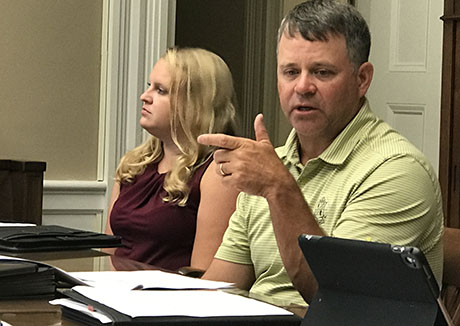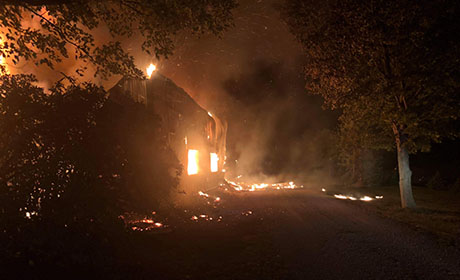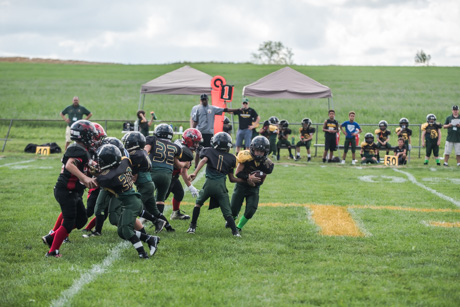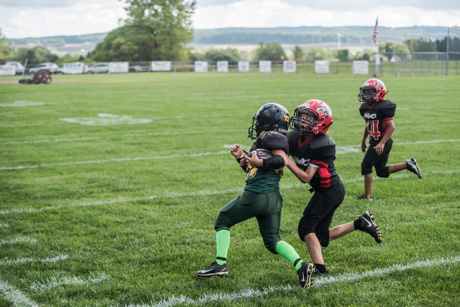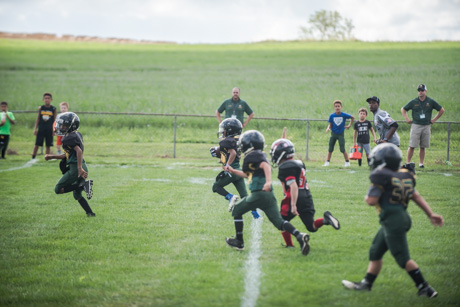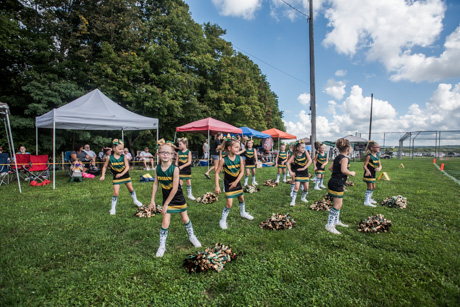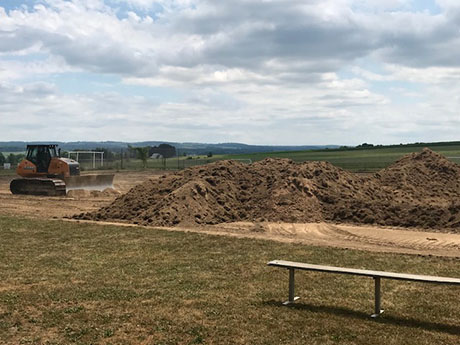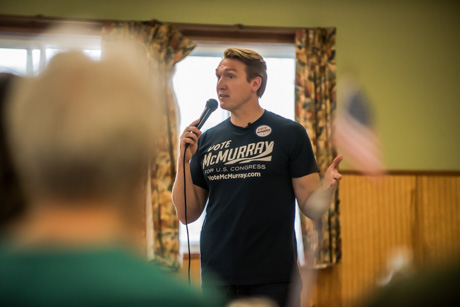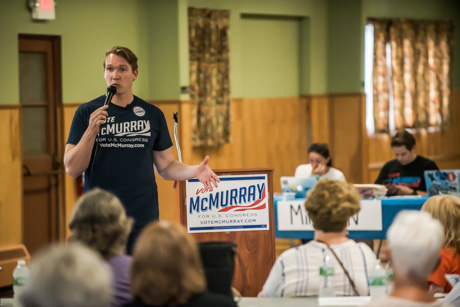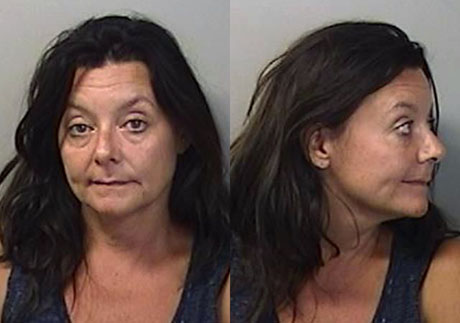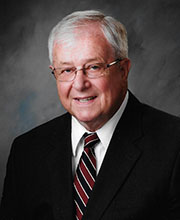Local leaders meet, hash out issues with plan to share sales tax revenue
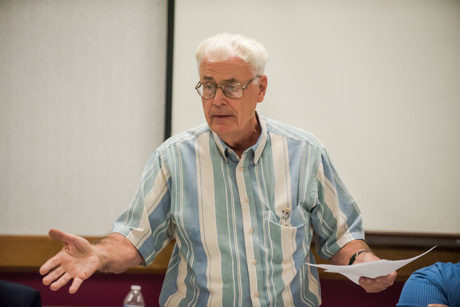
It was pretty clear at a gathering of local leaders at County Building #2 on Thursday night that few elected officials in Genesee County's towns and villages are happy with the county's plan for how it will share sales tax revenue.
It was also clear that the county has few options.
The current plan is for the county to cap the amount of sales tax revenue it annually sends to towns at villages at 2018 levels for 40 years.
Sales tax revenue has been a significant portion of revenue for local jurisdictions -- it's 51 percent of the Town of Le Roy's revenue, for example -- enabling local officials to hold down property taxes.
Now those officials fear the economic impact of seeing sales tax revenue shrink relative to rising costs and what it will mean for property owners in their jurisdictions.
"This agreement is a burden on the towns and villages," said Michael Plitt from the Town of Darien. "It will mean towns have to impose higher property taxes or cut services."
From the county's perspective -- as shared by Bob Bausch (top photo), chair of the County Legislature -- the county has few alternatives.
- The state is forcing the county to build a new jail, which will cost local taxpayers $50 million, or more, plus interest, over 40 years;
- The state is imposing new requirements, called "Raise the Age," for how criminal defendants ages 16 and 17, are handled by law enforcement, the courts, and corrections, which will cost the county $2 million to $3 million a year -- a cost the state says it will reimburse the county for but only if the county stays under the property tax cap;
- The county is facing $75 million in expense to replace aging bridges and culverts.
The county's proposal for sharing sales tax revenue capped at the 2018 rate is an explicit attempt to keep more sales tax to help pay for the new jail.
Bausch pointed out that 80 percent of every property tax dollar collected locally goes to cover state-mandated expenses. Legislator Andrew Young added that the county has only two revenue streams -- property tax and sales tax; and with property tax, the levy is capped so the county doesn't have the option to raise property tax to pay for the jail, that leaves sales tax as the only option.
Young also pointed out that Genesee County is the most generous county in the state for sales tax with towns and villages. Maybe if its share was more in the middle of the pack over the past 10 years, the county wouldn't be in the situation it's in now.
One of the chief objections to the plan for town and village leaders is that the agreement would last 40 years.
Rob LaPoint, deputy supervisor in the Town of Pavilion, calculated inflation going back to 1977 and pointed out that a dollar 40 years ago is worth 25 cents now, at that rate, the county will gain $625 million over 40 years.
"You could build 10 jails for that," LaPoint said.
Both Bausch and Young indicated the county is willing to adjust the 40-year time frame. Young said he favors 15 years.
"If it is a 15-year agreement in place, I know I won't be around, at least I hope not," Young said. "The Legislature in 15 years might decide to take more money."
The county isn't obligated under state law to share any sales tax revenue with the towns and villages. Bausch pointed out that the county could make the amount to share an annual budget decision.
Bausch said without an agreement, he couldn't obligate future legislatures to any particular amount of revenue share.
Some in the audience expressed concern that the City is getting a better deal than the towns and villages. While the amount of new sales tax revenue that will flow to the City will be restricted under its agreement with the county, it is not capped.
The City has more leverage because it can legally override the county sales tax and impose its own sales tax, something the villages and towns can't do.
However, Steve Barbeau pointed out that the City doesn't have that much leverage because most of the sales tax in the county is generated by businesses outside of City limits.
Legislator Marianne Clattenberg said the City has much higher expenses than the towns and villages. It has its own police department and fire department but it is also the site of most of the tax-exempt property in the county, including the jail, the courthouse, the Old Courthouse, and County Building #1, yet the city must protect those buildings with its police and fire departments and plow the roads that lead to them without collecting the property tax to pay for those services.
David Hagelberger, supervisor for the Town of Darien, wanted to know why the county didn't deal with the jail issue sooner. Bausch said the county wasn't was aware of the looming issues with the jail, but that while it owned the County Nursing home, losing $2 million to $3 million, it really didn't have the ability to deal with the jail or roads and bridges.
While Hagelberger shared many of the same concerns about the length and nature of the agreement and burden it will create for local jurisdictions he also said, "the jail is really all of our problems" and that one way or another everybody in the county was going to have to help pay for it.
Also unique to Genesee County in New York is the county's responsibility for all of the roads and bridges in the towns and villages, which ends up being a cost savings for local jurisdictions, something Carol Glor, supervisor for the Town of Oakfield, said she appreciated.
"We just got two new bridges in Oakfield that are worth well over $2 million," Glor said. "There is no way we could have taken on that expense in our budget."


